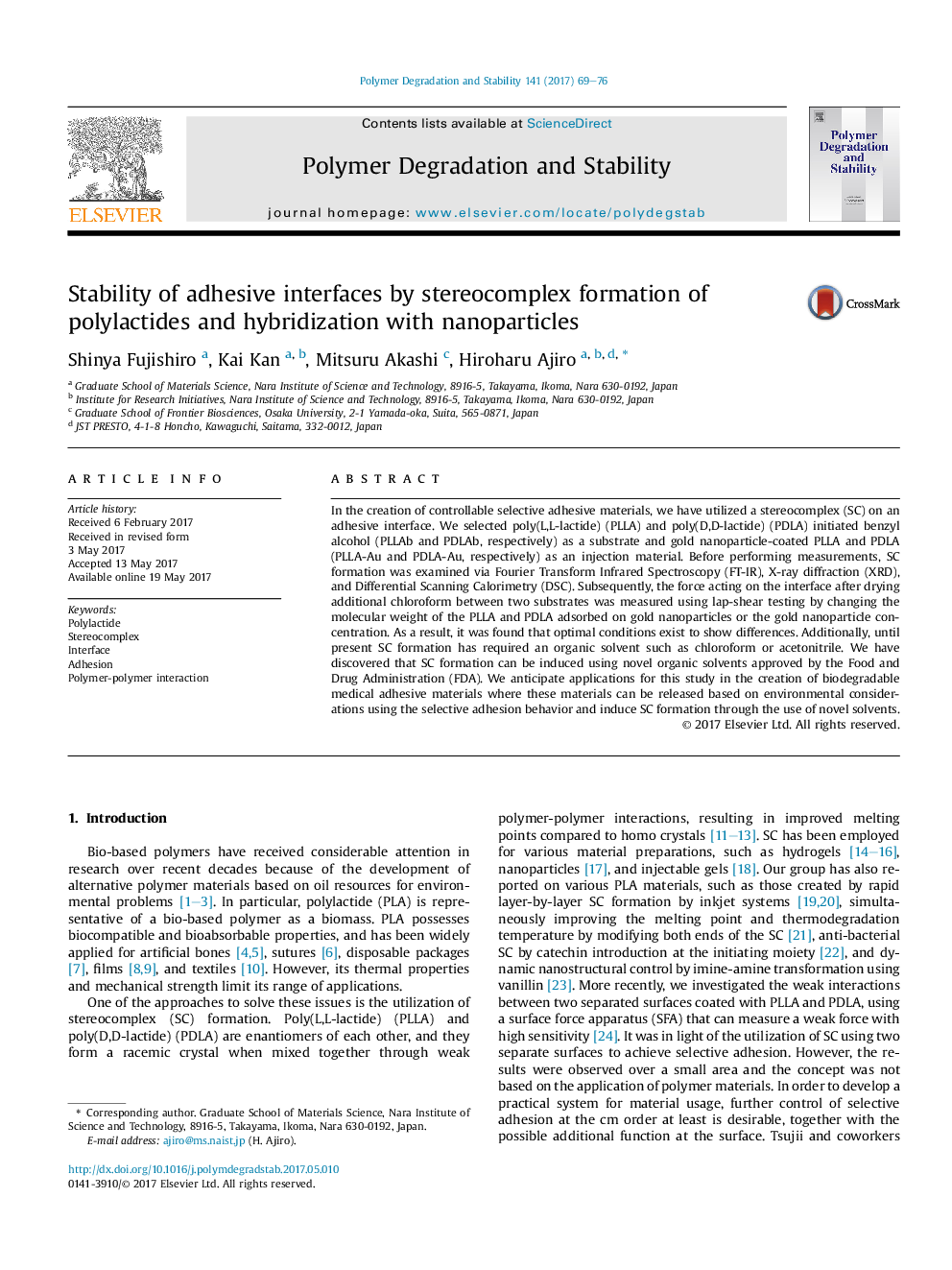| Article ID | Journal | Published Year | Pages | File Type |
|---|---|---|---|---|
| 5200685 | Polymer Degradation and Stability | 2017 | 8 Pages |
In the creation of controllable selective adhesive materials, we have utilized a stereocomplex (SC) on an adhesive interface. We selected poly(L,L-lactide) (PLLA) and poly(D,D-lactide) (PDLA) initiated benzyl alcohol (PLLAb and PDLAb, respectively) as a substrate and gold nanoparticle-coated PLLA and PDLA (PLLA-Au and PDLA-Au, respectively) as an injection material. Before performing measurements, SC formation was examined via Fourier Transform Infrared Spectroscopy (FT-IR), X-ray diffraction (XRD), and Differential Scanning Calorimetry (DSC). Subsequently, the force acting on the interface after drying additional chloroform between two substrates was measured using lap-shear testing by changing the molecular weight of the PLLA and PDLA adsorbed on gold nanoparticles or the gold nanoparticle concentration. As a result, it was found that optimal conditions exist to show differences. Additionally, until present SC formation has required an organic solvent such as chloroform or acetonitrile. We have discovered that SC formation can be induced using novel organic solvents approved by the Food and Drug Administration (FDA). We anticipate applications for this study in the creation of biodegradable medical adhesive materials where these materials can be released based on environmental considerations using the selective adhesion behavior and induce SC formation through the use of novel solvents.
